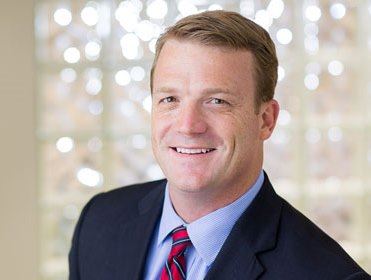Increase the revenue stream. Create local jobs. Support the Film Industry Incentive in Pennsylvania. |

What incentives does the PA Film Industry Incentive offer?
Pennsylvania offers a 25% tax credit to films that spend at least 60% of their total production budget in the Commonwealth. This equates to money spent on anything from equipment to office supplies and everything in between (including hiring and filming locally). In addition, there is an incentive to freely use State owned property and a tax incentive at Pennsylvania hotels for cast and crew staying 30 (or more) consecutive days.
"The economic value of the arts and cultural production in the United States contributes more than twice the amount generated by mining (including oil and gas extraction). The motion picture industry adds more to the US economy than the total value added by automobile manufacturing."
~BEA (U.S. Bureau of Economic Analysis
Important Links
A Message From Your Lobbyist |
| In June, the House and Senate passed a $32 billion spending plan. In late July the Senate passed a revenue bill to fund that spending plan. The new revenue package would generate $530 million from new taxes, including $200 million from expanded gaming, as well as natural gas severance tax. Additionally, the Senate approved $1.3 billion in borrowing against future tobacco settlement payments. Read More |
| At the end of June, there remained significant uncertainty as to the direction and timing of the state budget. Now, as July comes to an end, a different but similar form of uncertainty exists. While the $32 billion spending bill is now law, the mechanism necessary to generate the revenue remains unresolved. Read More |
| June 30th is upon us...and as the final day of the 2016-2017 Fiscal Year, I am pleased to report that the general appropriations bill (the budget bill) will be complete by the end of the day. At this point, legislative leaders have coalesced around a spend number - roughly $31.996 billion – but decisions over exactly where new revenues will come from to close a $1.2 - $2 billion budget hole remain elusive. One potential new recurring source of money that’s sure to be talked about in the week ahead is gaming expansion. Read More |
| Memorial Day has come and gone, propelling us into the next annual holiday (or so it seams)... the state budget. As we all know, June is the busiest month of the year i Harrisburg - with feverish negotiations towards a balanced budget. And just like in years past, the state is stuck with difficult decisions to make: How much needs to be cut? What gets cut? If we can't find enough savings in cuts, where do we get new revenue? Increase existing taxes? Establish new taxes? Read More |
| It's budget season again in Harrisburg. It's like Groundhog Day. Please, refrain from getting so excited. Earlier this month the House has passed its version (HB218) of the 2017-2018 budget and sent it to the Senate. This year, the budget is approximately $32 billion, with the two major areas of PreK-12 education ($12 billion) and health and human services ($13 billion). Read More |
| On Tuesday, February 7, Governor Wolf gave his third budget address since being elected Governor. And the Governor held true to his word that he would not seek an increase in the tax rates for income or sales. Instead, the Governor proposed some consolidations (combining 4 departments - Health, Human Services, Aging and Drug & Alcohol - into one) and closings (closing a prison in western Pennsylvania) which would incur some savings. Additionally, the Governor proposed some new revenue options like internet gaming (approximately $150 million in estimated revenue) and also charging a $25 per resident fee if you live in a municipality which uses the state police for PRIMARY protection. Read More |
| The House and Senate started a new two-year session on Tuesday, January 3, swearing in all 203 House members and 25 Senators. The 2017/2018 session that lies ahead will have many hallenges, most notably the same one that has plagued this Commonwealth in recent memory - the budget. Read More |
| First and foremost, Happy Holidays to everyone. Pour yourself a glass of holiday cheer and drink up before reading the following state budget update. Good. Are you feeling warm and fuzzy? Things a little blurry? Well things are blurry in Harrisburg these days as well. Read More |
| 2016 Election - Pennsylvania Results Results of the 2016 election: President
US Senate
Read More |
| Pennsylvania’s primary election on April 26th has come and gone, with no incumbents being ousted as fallout from last year’s budget impasse. So now, as session continues into May and June, the attention turns again to the Budget. And while the state budget isn’t due for two months, neither side appears to have moved away from the hard-and-fast positions staked out during the historic impasse. Read More |
| Budget Overview: Last month, Governor Wolf allowed the $6 billion GOP-crafted supplemental budget bill (HB 1801) to become law without his signature. At the time, Wolf insisted the spending plan remained out of balance and said he cannot put his name on a plan that spends more dollars than exist. Read More |
| PA Budget Update The budget impasse is now beyond 100 days. Negotiations continue between the Governor and Leaders in the House and Senate. Read More |
The PA Film Tax Credit
| The Milken Report on Pittsburgh Film Incentives The Milken Institute, the nonprofit think tank known for data driven studies offering solutions to policy initiatives, has turned it’s eyes on Pittsburgh’s film and media scene in the hopes of determining what makes Pittsburgh home to what is called “a thriving cluster of media related jobs.” Read More |
| Ben and Oliver Samuels are producing brothers shooting in their native Bucks County. Ben attended Tufts University and made a microbudget horror film, entitled Watch Me, immediately after graduation. The film starred then unknown actor Nick Jandl, who is now breaking hearts as Dr. Caleb Ryan on Nashville. Read More |
| Film tax incentive program differences Over the past weekend, the Wall Street Journal reported that the North Carolina legislature had voted to end the state’s film incentive program. Lawmakers were quoted expressing a desire to cut one of the oldest and most successful film programs in the country and instead provide incentives for other industries in North Carolina. Read More |




